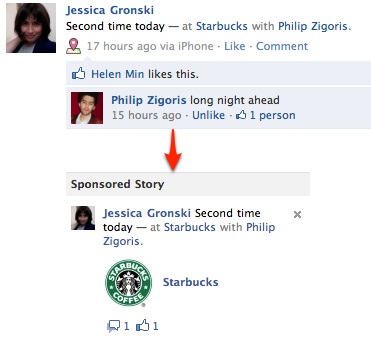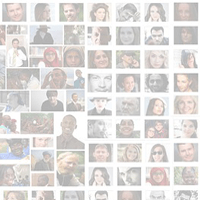The New Reality of Facebook Advertising


Facebook has announced a new advertising scheme called "Sponsored Stories." It is interesting - and risky. Some might even say it is dangerous. Small businesses in particular should pay very close attention.
First, the basics of how Sponsored Stories works, then a closer look at what it means to your business.
Advertisers can now buy advertisements based on user activity and interaction with that brand's Facebook page, status updates or other interaction. Those ad buys are Sponsored Stories, and it works like this:
When a Facebook user "likes" a page or a piece of content from a brand that has bought Sponsored Story advertising, that action will be used in a paid Sponsored Story advertisement, seen on the right sidebar of that user's friends' pages. Those friends will see that you liked a story or a brand page then be encouraged to visit and like the same page (brand). For example, "Joe likes Acme Cola, you should too!" Many of these types of advertisements are already in use. But now there's more. Much more. In the example at right, you can see that Jessica "checked in" with her local Starbucks along with a friend, Philip. Now, friends of theirs will see this ad from Starbucks on their profiles, under the "Sponsored Story" heading. This, in addition to the original interaction seen on users' news feeds. It's a double dip.
In the example at right, you can see that Jessica "checked in" with her local Starbucks along with a friend, Philip. Now, friends of theirs will see this ad from Starbucks on their profiles, under the "Sponsored Story" heading. This, in addition to the original interaction seen on users' news feeds. It's a double dip.
"Application Plays" work in a similar way. If a user decides to use a branded application, the action will be broadcast. So, if a Coca-Cola app was used to upload a photo, your friends will see it in their news feeds and again as a Sponsored Story advertisement ('Joe used the Coca-Cola app to upload a photo').
In addition, any content posted by the brand and then "liked" by a user will show up in the user's news feed as well as on their friends' pages as, you guessed it, a Sponsored Story ad.
Implications
This will surely set off massive privacy concerns and outrage from many Facebook users, just as Beacon did when it was announced. As it stands today, users do have the option to block brand feeds, just like they would hide updates from overactive friends. However, users cannot opt out of, or turn off Sponsored Stories. So, if you interact with a brand that is using Sponsored Stories (or several), all interactions with that brand(s) is eligible for use in an ad - whether you like it or not.
A line in a post from Inside Facebook puts it rather bluntly (and accurately) with, "Sponsored Stories co-opt a user's actions, voice, and identity to create ads that resonate with their friends." For users, "co-opt" in the same sentence as "identity" is downright scary. It also raises some interesting questions for advertisers and brands.
Little doubt exists as to the effectiveness of user Facebook activity in spreading a brand's message and attracting new advocates. This new generation word-of-mouth marketing appears so effective, in fact, that Facebook advertising revenue is expected to at least double in 2011, to the tune of $4 billion or more. But, as users cannot opt out of Sponsored Stories, will it make them reluctant to "like" an advertiser's page or check in to a store's location? Does this, in fact, remove all incentive for a Facebook user to connect with a brand by turning them into unwilling advertising shills?
In effect, user actions and behaviors are working to directly benefit the bottom line of corporations, without a shred of compensation. Facebook users are now unpaid advertising employees - most of them, unwittingly so. This is not the land of voluntary brand advocacy and user engagement and grass-roots viral marketing. This is simply pay-to-play ... and the cost is user privacy.
Of course, users have a choice. They can choose not to interact with brands on Facebook. And for many, that will be exactly what they do. The most affected businesses will be smaller ones that rely on painstakingly-built Facebook communities. They rely on "likes" and shares. They might not buy a single advertisement on Facebook and therefore the user's activity would never be shared - but it doesn't matter. Once users understand the implications, every business is a suspect, and not to be trusted.
Where's the silver lining, you ask?
Facebook is well aware of the wild success of Groupon, LivingSocial and other so-called mob marketing initiatives. And that could very well be what they are working toward with Sponsored Stories.
For brands, these ads could have incredible potential. Imagine a great piece of content is "liked" by one of your brand's fans. Then, that "like" is seen by 200 of that person's friends (potentially twice). Subsequently, one of those friends "likes" it, too, and it is then seen by 200 more friends (potentially twice). You see where this is headed. The same could work for a check-in at a business location or a killer new Facebook app. But what could possibly make a user a willing partner in an advertising scheme? Discounts. Sales. Free trial memberships. Value. And that is where businesses must go.
That is the new reality of advertising on Facebook.

Subscribe to Our Newsletter!
Latest in Social Media









